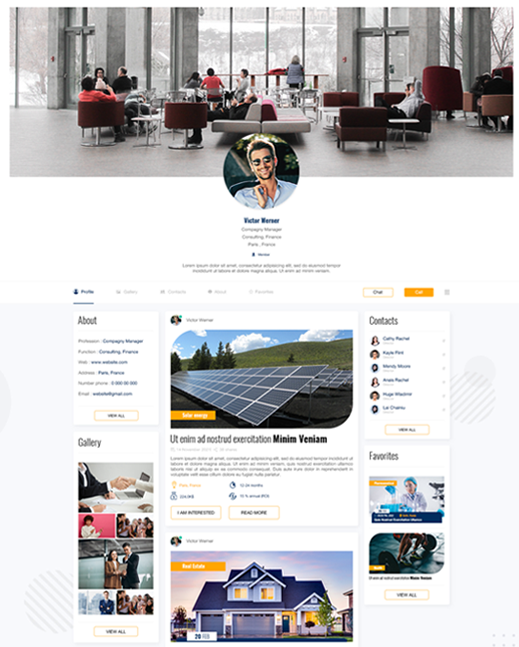News & Views

Web3 has been put forward as the blueprint for the latest version of the Internet but it doesn’t exist yet.
That hasn’t stopped former CEO of Twitter and current CEO of Block, Jack Dorsey, skipping ahead and announcing plans to build a new decentralised Internet platform, coining the term Web5 for the first time.
The initiative will be based heavily on current blockchain technology, with Dorsey announcing plans to use the Bitcoin network to build the project.
The move comes as Dorsey has voiced dissatisfaction with how the evolution of the Internet is progressing at present. On a number of occasions, the entrepreneur has openly denounced Web3, describing it as a centralised movement that benefits venture capital (VC) companies.
Web3 is a term for how developers think the Internet will look like throughout the next decade with non-fungible tokens (NFTs), metaverses, blockchain technology and crypto likely to be strong components.
“You don’t own ‘Web3,’” Dorsey wrote in a tweet posted late last year.
“The VCs and their LPs do. It will never escape their incentives. It’s ultimately a centralized entity with a different label. Know what you’re getting into”.
What exactly will Web5 do and what will it look like?
According to the launch plans, the Web5 project will provide a decentralised web platform that enables “developers to leverage Decentralised Identifiers, Verifiable Credentials, and Decentralised Web Nodes to write Decentralised Web Apps, returning ownership and control over identity and data to individuals”.
In essence, the project is based on the idea that Web3 – which aims to create a decentralised web using blockchain, crypto and similar tech – has the right intention but the wrong execution.
Web5 supposedly aims to tackle this problem by using different tools than Web3, which gives more power and control to the everyday internet user.
The project will utilise the blockchain technology used for Bitcoin in a bid to cut spending while pushing to make peer-to-peer Bitcoin digital money a reality.
Web5 will also use technologies such as decentralised identifiers, a decentralised web node, a self-sovereign identity service and a self-sovereign identity software development kit.
Greater power over identity and data
“The web democratised the exchange of information, but it's missing a key layer: identity,” the project stated on its website.
“We struggle to secure personal data with hundreds of accounts and passwords we can’t remember. On the web today, identity and personal data have become the property of third parties”.
“Web5 brings decentralised identity and data storage to your applications. It lets devs focus on creating delightful user experiences while returning ownership of data and identity to individuals,” it continued.
One of the key aims of the Web5 initiative is to fill a void in the web’s identification system by “building an extra decentralised web that puts you in control of your data and identity”.
Currently, identity and personal data are held by third parties. However, under the Web5 model, consumers will manage their own data and identities through decentralised web nodes.
There are many ways these decentralised web nodes can be used to benefit the user.
One key example could be a digital wallet that securely manages identity, data, and authorisations for external apps and connections.
The wallet would then be used to sign in to a new decentralised social media app, negating the need to create an entirely new profile.
Instead, all the connections and relationships and posts it creates will then be stored through the decentralised web node for future use on different apps.
This gives power back to the consumer, rather than third-party companies, and allows better control over the flow of our data.
Unrealistic cash grab or future of the Internet as we know it?
While Web5 is appealing to many who believe it could bring better control over data and identify the user in an ever-increasing over-saturated internet, others have been more sceptical of the news.
Jonny Clark, co-founder of GDPR compliance startup GDPR Defender, points out that Web5 is just a combination of Web2 and Web3.
“A benefit of centralised internet, Web2, is the ability to employ verification and identity assurance. The benefit of the decentralised internet, Web3, is bypassing central ownership and enabling true anonymity,” he told Euronews Next.
“You're still relying on an expensive document that is connected, in some form, to a central database”.
“We have seen loads of identity apps and cards spring up over the years, but none of them have ever really hit mass adoption in the markets – largely because they're centralised, operating on a proprietary architecture, and suffer from all of the usual challenges of scaling an app”.
Joe Downie from Nice Hash, a cryptocurrency trading and mining platform, argues that the project being built through Bitcoin is “contradictory because the positive of Web3 is that it’s completely decentralised – it’s open for anyone to use and participate, to give control of data back to the user”.
“Using Bitcoin is somewhat limiting, to use any project or node on the platform it would need to be on the Bitcoin blockchain which excludes a lot of other projects. It’s a bold statement,” he added.
“I think the key question to ask, especially when the project is built using Bitcoin, is whether it’s scalable? We've seen Bitcoin has its limitations when it comes to scalability and speed and things like that – putting an entire web network on top of that is quite a challenge”.
There is also scepticism around the timing of this announcement.
“I think Web5 as a title is just Jack Dorsey cashing in on the current discourse. It feels to me like it's more of a landmark feature of Web3 than a whole new paradigm,” Clark added.
“People are now very pessimistic about Web3 technologies because we're in the part of the economic cycle where the wheat gets separated from the chaff.
“Remember how bearish everybody was on the internet for a period after the dot com bubble? Nevertheless, this is where the good companies and products get made”.
How to join Oxentt ?
To join the exclusive Business Agency elite group does not require important financial contribution. It is, however, imperative that by joining all members adhere to its philosophy of ethics, respect and seriousness.
Any business owner from any country, investor, entrepreneur and corporate executives are welcome to join us.


